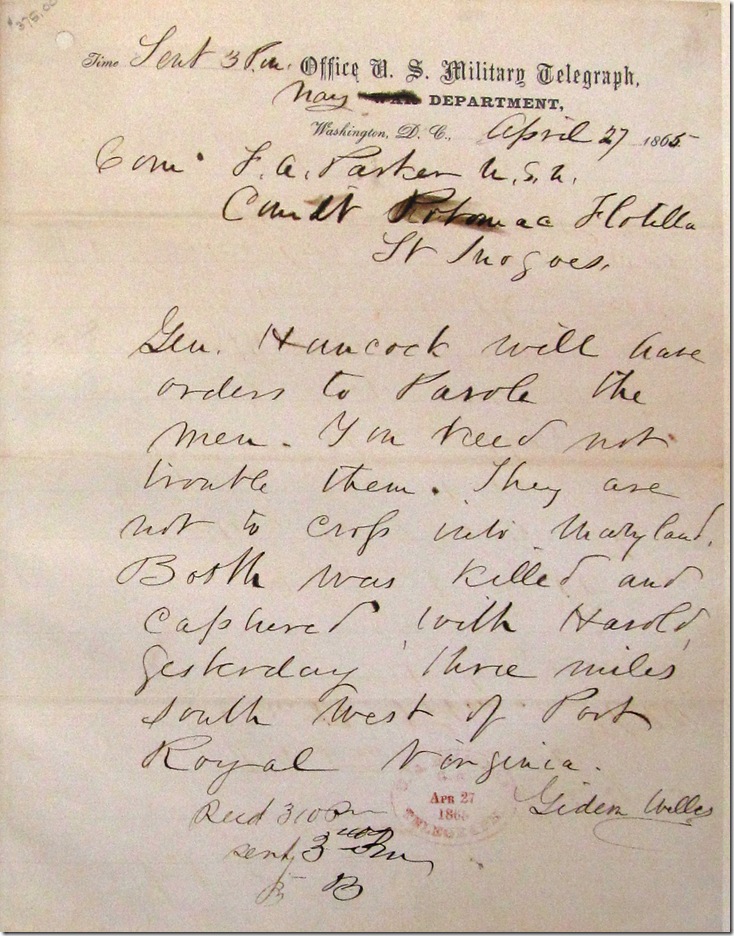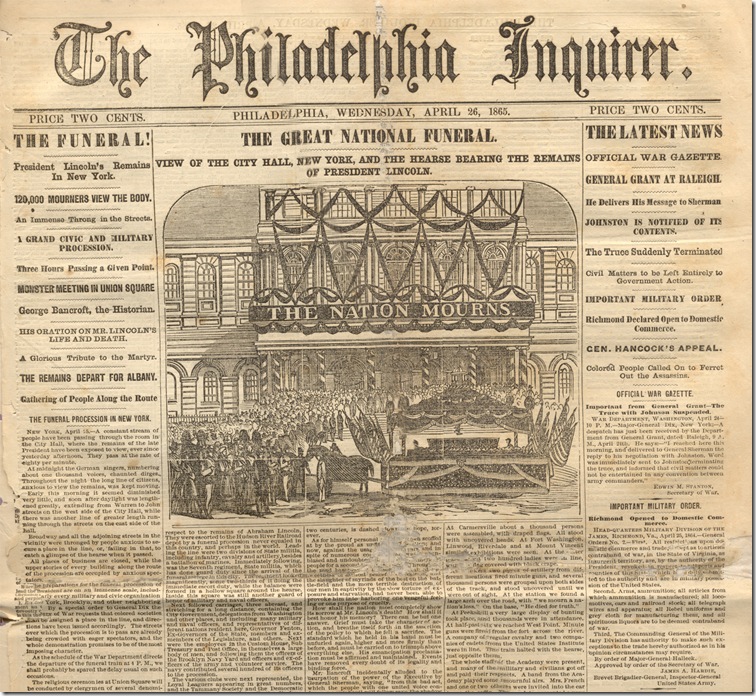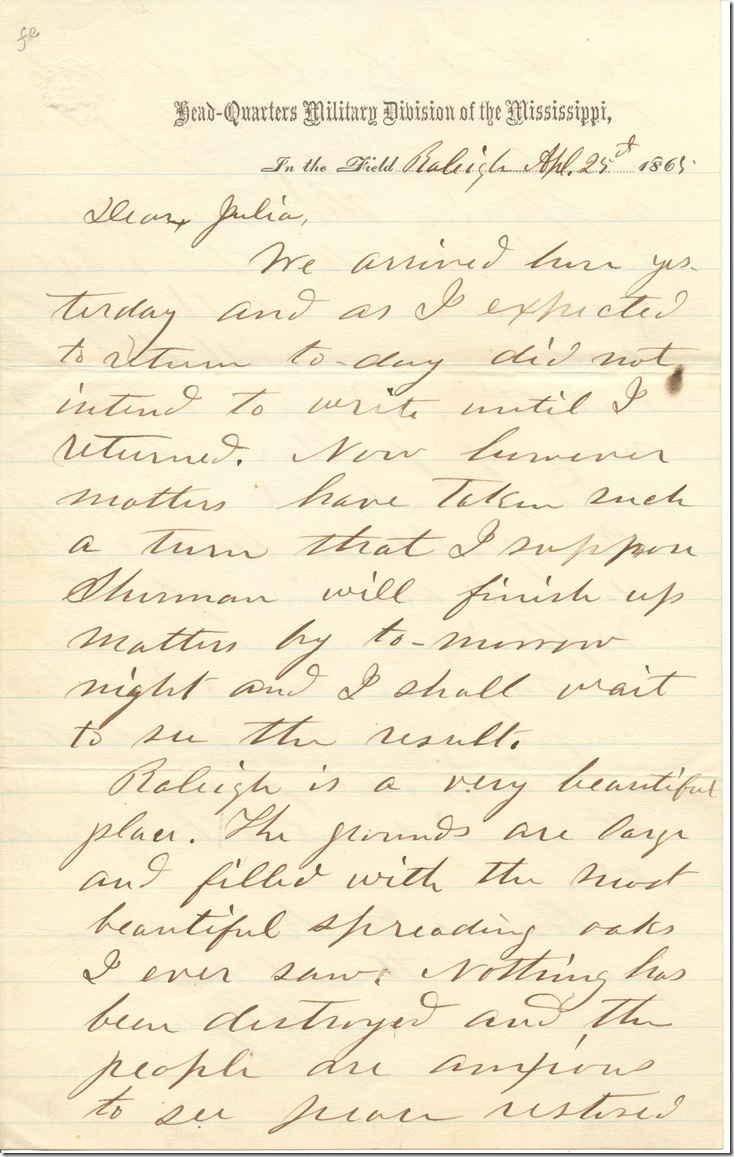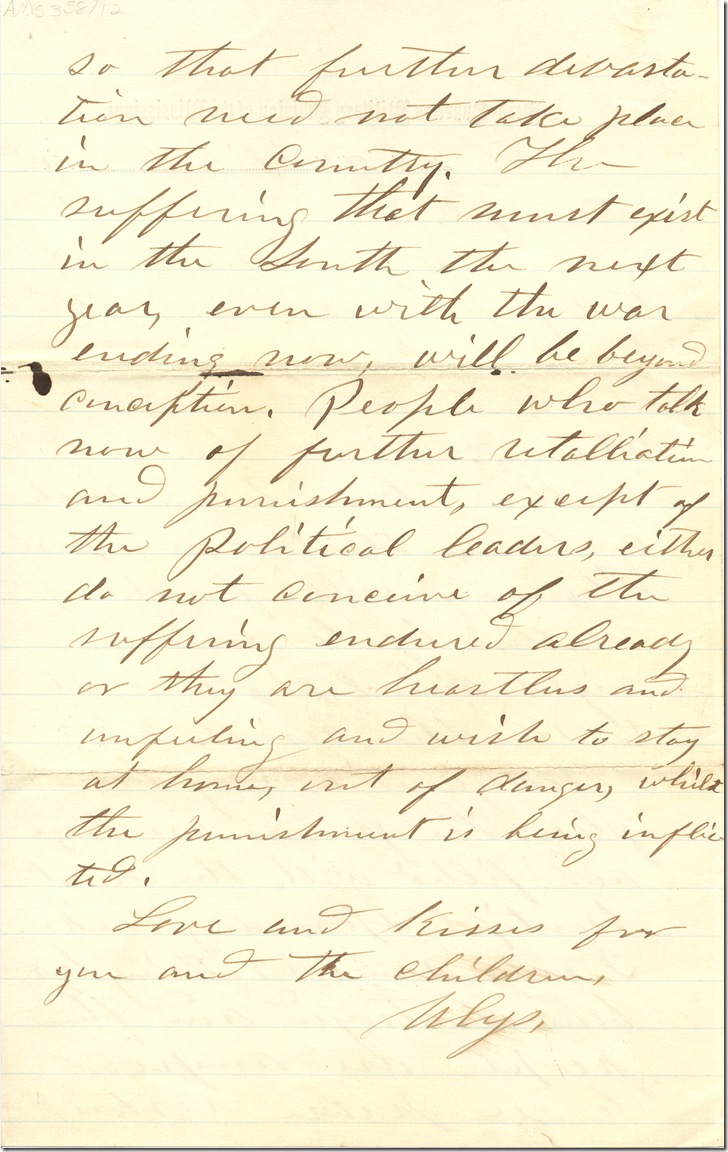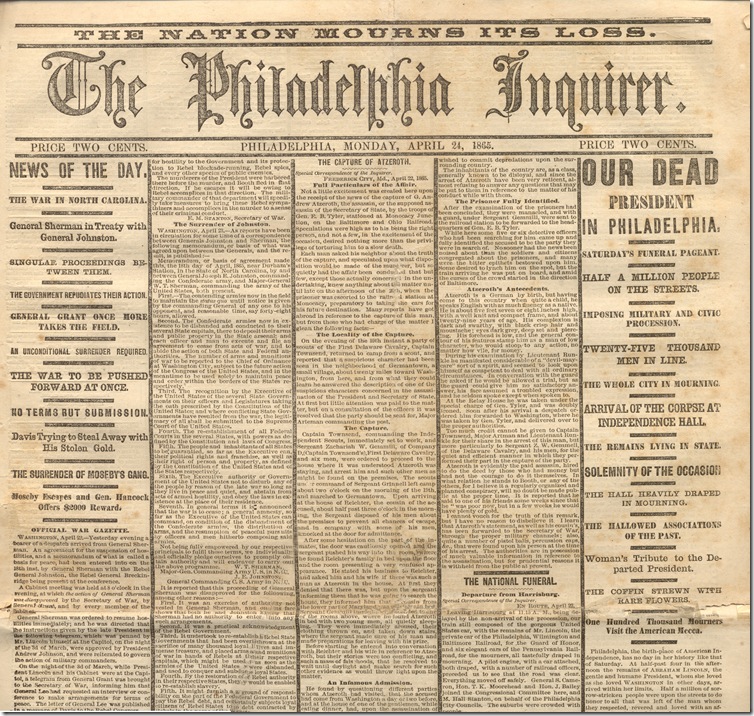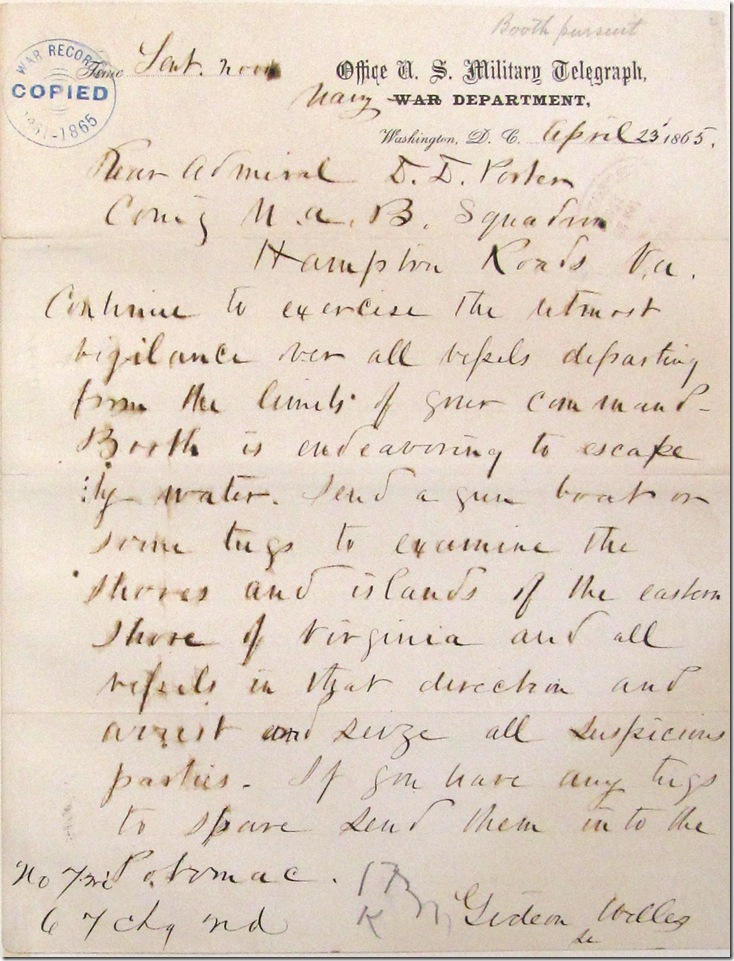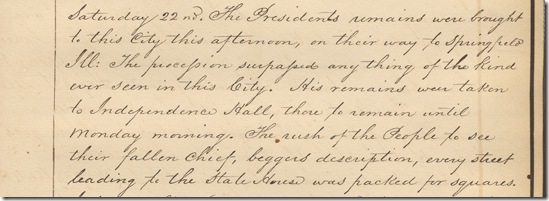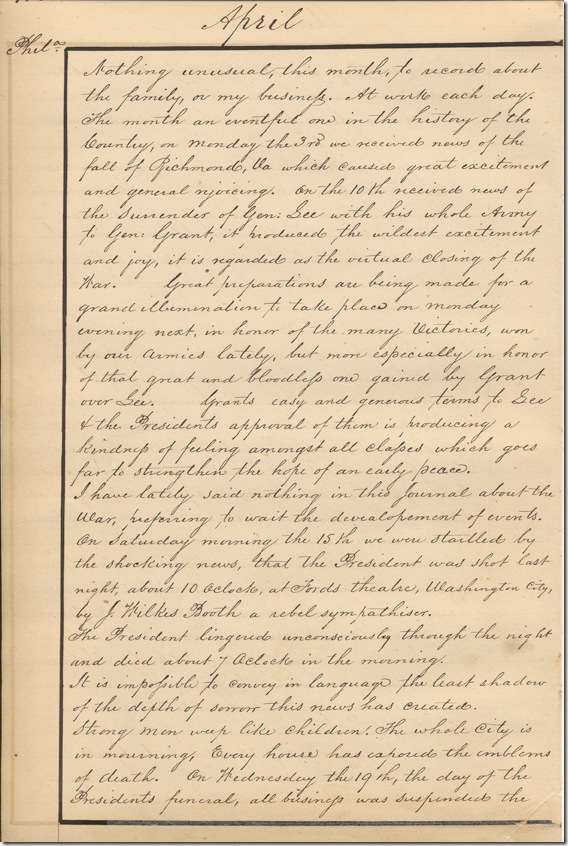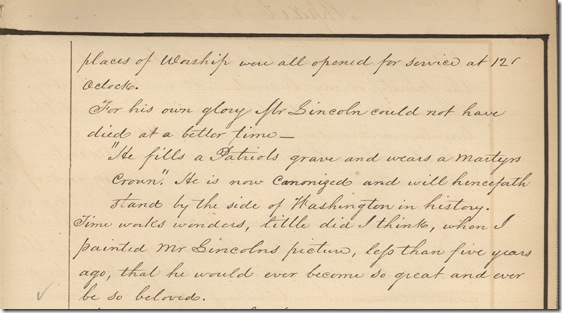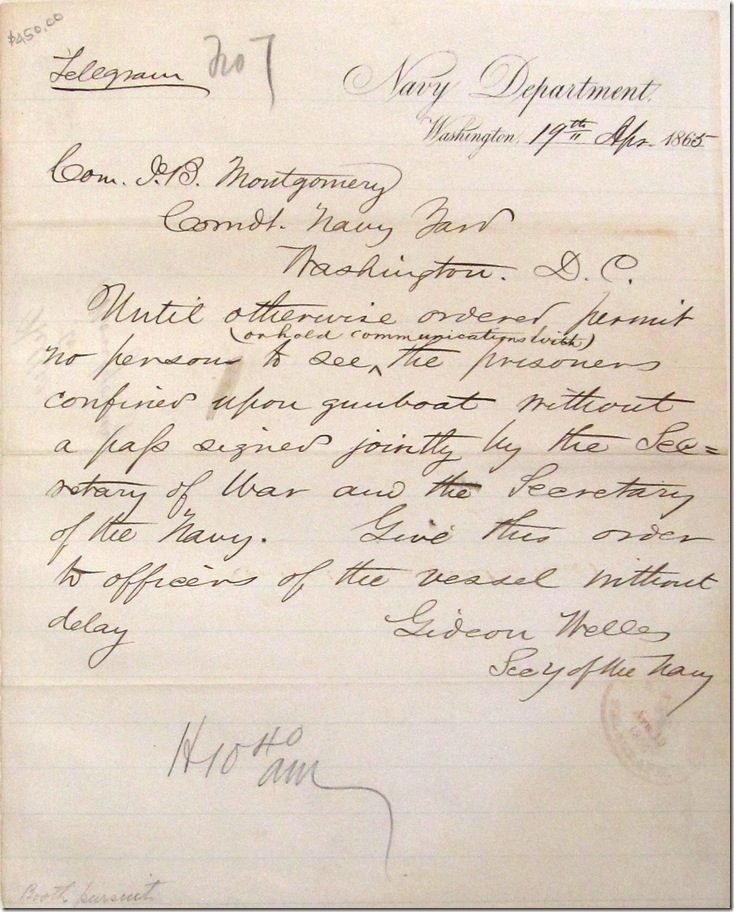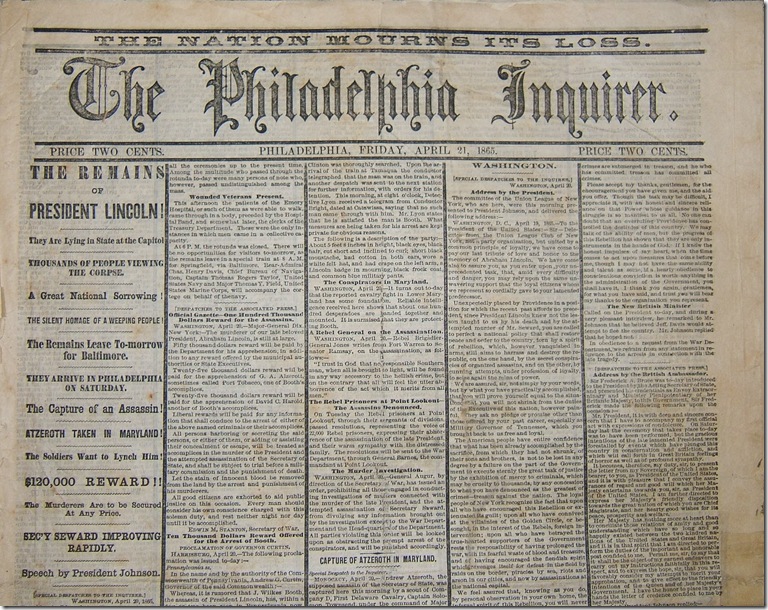
Transcript (excerpt):
Ten Thousand Dollars Reward Offered for the Arrest of Booth
Proclamation of Governor Curtin.
Harrisburg, April 20.- The following proclamation was issued today:-
In the name and by the authority of the Commonwealth of Pennsylvania, Andrew G. Curtin, Governor of the said Commonwealth:-
Whereas, it is rumored that J. Wilkes Booth, the assassin of President Lincoln, has, within a day or two, been seen in Pennsylvania, now, therefore, I, Andrew G. Curtin, Governor as aforesaid, do hereby offer a reward of ten thousand (10,000) dollars to be paid to the person or persons who shall apprehend said Booth within this Commonwealth, so that he may be brought to justice; and said reward to be paid immediately after the necessary appropriation shall have been made by the Legislature.
Given under my hand and the great seal of the State, at Harrisburg, this twentieth (20th) day of April, in the year of our Lord one thousand eight hundred an d sixty-five (1865) and of the Commonwealth the eighty-ninth (89th).
By the Governor.
Eli Slifer
Secretary of the Commonwealth
Citation: Philadelphia Inquirer. Philadelphia, 21 April 1865. Gift of Steven and Susan Raab. AN.P5446
